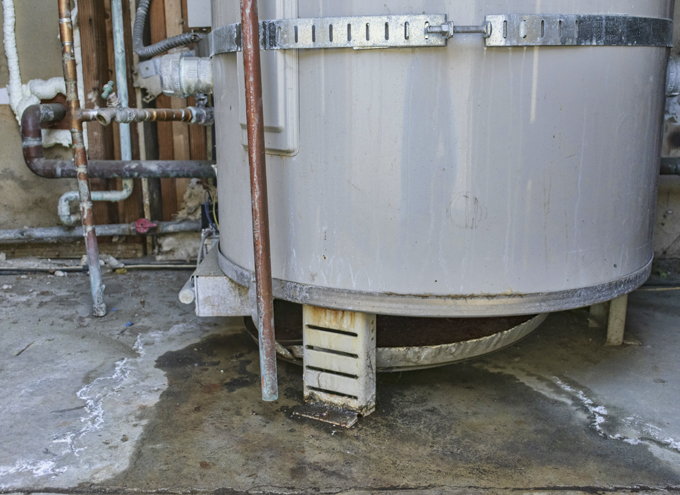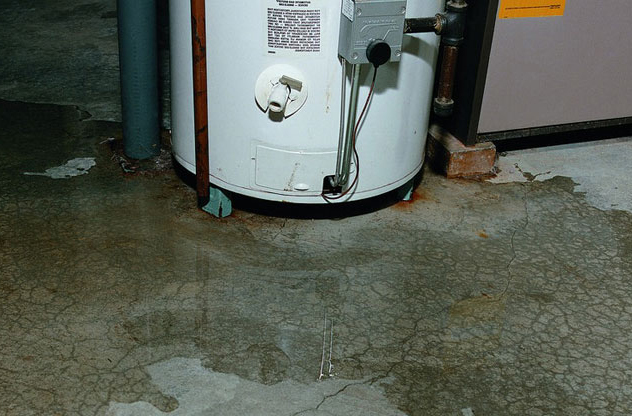Important Guidance for Residential Property Owners Managing Faulty Heating Units
Important Guidance for Residential Property Owners Managing Faulty Heating Units
Blog Article
The content which follows pertaining to Broken Water Heaters is indeed insightful. Don't bypass it.

Whether it lies in the basement or a different area, broken water heaters can cause stress and anxiety. A standard unit holds 80 gallons, so an overnight leakage will certainly result in a flood. This leads to significant residential property damages with drenched wall surfaces as well as floors. Besides, having no hot water supply is likewise problematic. If you are taking care of these concerns, keep in mind of the following:
Shut Down Source Of Power
Before calling the plumber, shut off a gas water heating unit by transforming the temperature level dial. This will certainly stop electrocution, especially if there is a leakage as water is a conductor. Normally, the heating element shuts off when the water strikes a specific temperature.
Cut Off the Cold Water Supply
Cut off the tanks faucet water supply from the resource. This goes from your primary water line into the tank. When your container remains in good condition, the cold water quits filling when the tank is complete. Considering that it is leaking, the water will proceed to stream. Close the shutoff located at the top of the heater. Rotate this clockwise to close it off. You should turn off that major water supply line outside your residential property if you can not find it or reach it.
Call the Plumber
After doing the first 2 safety actions, you must call your plumber ahead immediately to deal with a ruptured hot water heater. Remember that your system will not just conk out substantially overnight. There are usually indications that your aging hot water heater has sediment accumulation in the interior. Remember of the following:
Don't wait on significant flooding to call the plumber. By then, you will have to invest even more to recover your residential or commercial property. Instead, as quickly as you detect these indicators, have a professional concerned check your hot water heater give thanks to. Commonly, hot water heater have a lifespan of concerning 8 to 12 years. With normal inspection and maintenance, you can lengthen its life.
Tidy up Building
After calling the plumber, record damages by taking notes as well as images so you can claim your home owner's insurance. Remove any type of standing water to protect against mold and mold growth. If you have a completely submersible water pump, make use of that to drain pipes the water.
Remember, if you notice any type of concerns with your hot water heater, call the pros today. You can not take this trouble gently due to the fact that a faulty thermostat can raise water temperature to a dangerously high level, bring about unintentional burns. A broken heater stress safety valve can also cause an explosion. For ideal results, get a yearly check so your device gets checked, cleansed, drained pipes, and filled up, guaranteeing ideal efficiency.
Whether it is situated in the basement or a separate space, busted water heaters can cause anxiety. Before calling the plumber, closed off a gas water heating system by transforming the temperature dial. After doing the initial two security actions, you must call your plumber to come right away to repair a burst water heating unit. If you have a completely submersible water pump, make use of that to drain the water. Remember, if you discover any type of concerns with your water heating system, call the pros right away.
Is My Water Heater Broken?
The Water Heater is Old
No appliance will last forever. This includes a home’s water heater. During its lifespan, residents are going to face a situation where a new water heater installation will be necessary. The biggest problem with this is that most people are not sure when their water heater expires. Not knowing this can lead to serious risks if the unit begins to act up due to old age.
Most makes and models of water heaters will last between eight and 10 years. While 10 years is the age when water heater replacement is highly recommended, the need to replace the unit may occur before this time or after. If the unit doesn’t show any symptoms of a problem, it is a good idea to replace it at the 10-year mark (from the manufacture date).
Some of the symptoms that indicate a new unit is needed include rusting, leaks, noises, and a failure to heat up the water. Also, note that not all units have a 10-year life expectancy. The main exception to this rule is that a gas unit will last for six to eight years.
Rusty Heater Inlet Valve or Water
While steel is the strongest material on earth, it does have a weakness – rust. If corrosion occurs on a steel surface, it will begin to spread and eat through the steel in certain areas. On water tanks and pipes that are made of steel, rust is a warning sign of an impending leak.
The issue for many is trying to figure out if the rust is coming from the water heater or the pipes that lead to the faucet. If rust is seen, it is a clear indication that water heater service from the professionals is needed.
If rusty water appears out of the faucets in the bathtub or sink, it likely means a rusty water heater. If there is rust near the water inlet or the pressure relief valve, rust has likely developed inside the tank. If tap water appears rusty, it may be an issue with the pipes.
Strange Sounds from the Water Heater
Are there strange sounds coming from the tank? As a water heater gets older, rumbling noises may develop and get louder and louder as the water in the tank heats up. In homes where large amounts of hot water are used, the issue is likely going to be even more obvious when more serious issues arise. If there is a strange or loud noise coming from the unit, it is probably because of sediment buildup. A good way to remedy this problem is by flushing the heater. If this does not work, then a new unit may need to be installed.
Leaks
As a water heater gets closer to the end of its useful life, there is a higher chance there will be water around the tank. If there is water, this usually means leaks are occurring. Based on where the unit is located in the home, a leak may result in serious property damage.
Leaks are usually caused by expansions in the metal tank. The expansions occur as time passes and as the inside body of the tank is exposed to multiple heating cycles per day. When a fracture forms, the gap will be slight enough to hold the water in; however, in more serious situations, this will not be the case. If the tank is idle, the water will not leak but when the metal expands during each heating system, small amounts of water will get through the gap.

We are very excited about How to Avoid a Broken Hot Water Heater and I'm hoping you liked the entry. Sharing is caring. You won't know, you might be helping someone out. We thank you for reading our article about Maintaining & Draining a Water Heater.
Drain issues? Reach out! Report this page